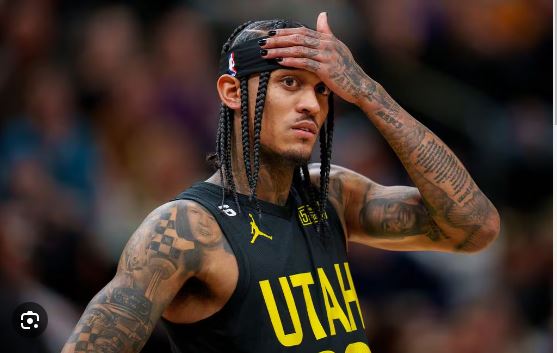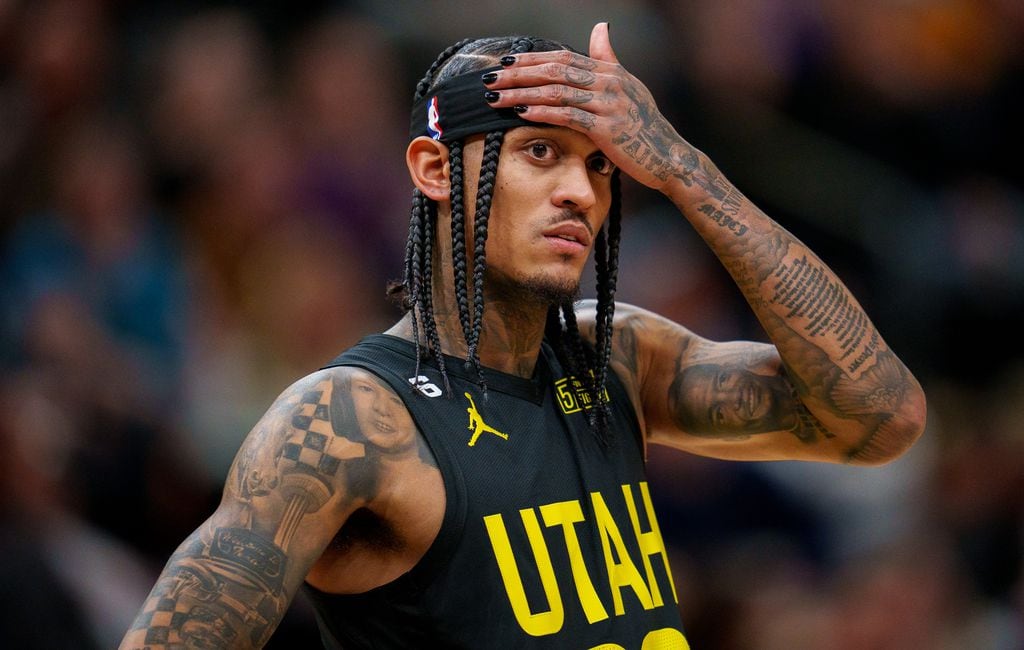
When Utah Jazz guard Jordan Clarkson elected to opt in last summer and was awarded a contract extension that lasted through 2026, it appeared to be a win-win for all parties. Clarkson received the lion’s part of the 55 million dollar three-year agreement in year one, giving the Jazz a marketable asset that could be used in their future rebuilding efforts. But what a difference a single season makes.
Multiple indications indicate that this will be his final year in Salt Lake City. However, moving on from Utah’s most tenured player has become more difficult due to his poor performance on the floor this season and recurring ailments.
Clarkson is now in the midst of his worst season in a Jazz uniform, and finding a buyer willing to trade an asset for his services will prove difficult. Clarkson will be paid 23.487 million in 2023-24, 14.092 million in 2024-25, and 14.092 million in 2025-26.
Clarkson averages an inefficient 17.1 points and five assists per game. His field goal percentage (41.3) and three-point percentage (29.3) are at a career low. Clarkson has also been the poorest defender on a club with the league’s lowest defensive rating. Utah allows an atrocious 120.4 points per 100 possessions, and with Clarkson on the floor, that number rises to 124.1.

In terms of durability, it hasn’t been ideal. If he finishes the season, Clarkson will have missed a total of 48 games over the last two seasons. Good luck finding a trade partner prepared to take on a guy on the wrong side of 30 and play on a team whose performance has deteriorated since signing the contract.
In hindsight, management made a mistake by extending Clarkson for three years rather than two. If his contract expired in 2025, there might be an argument for taking on the risk, but with two more years, it’s unlikely.
So, what does this signify going forward? If the reports are accurate that Clarkson will not return next season, Utah must be willing to accept a terrible contract in exchange for a straight-up agreement.
His contract may also be used to trigger a blockbuster trade if Utah uses their draft pick stockpile this summer to acquire an All-Star player. However, his contract would still be deemed a negative asset in that case.
Finally, Utah may be obliged to keep the former Sixth Man of the Year heading into the upcoming season. His trade worth may increase if his performance on the court improves and his contract nears the end. Regardless, the signing had Jazz fans ecstatic last summer appears to be a challenge that Utah’s front team will face this summer and possibly beyond.
Leave a Reply